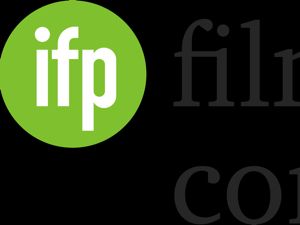By providing your information, you agree to our Terms of Use and our Privacy Policy. We use vendors that may also process your information to help provide our services. This site is protected by reCAPTCHA Enterprise and the Google Privacy Policy and Terms of Service apply.
Watch: The IFP Master Class on How to Finance Your Film
One of the key panels during IFP’s Independent Film Week was the hour-long “Masterclass: How to Finance Your Film,” moderated by Emerging Pictures’ Ira Deutchman.
Presented by HSBC and indieWIRE, the participants represented all aspects of the financing process including banking, law, government and producing, with a particular focus on upcoming Focus Features release “Pariah.”
[Video from the entire conversation is below.]
For those who want to watch the full panel, check it out below; for the text minded, here’s the highlights.
Nekisa Cooper, producer, “Pariah”
“Pariah” is about a teenage black lesbian, so we turned over every rock to see who might support this story,” she said. “It took a lot of preparation. Knowing the cost of your money and the cost of those relationships are important as well.
Cooper said that she and her team initially looked to the San Francisco Film Society and grants organization Cinereach for the initial round of finance.
“With most of my projects, I start with the nonprofit sector first and then go to equity investors because some money is in place and it’s not recoupable,” she said.
“As an independent producer, everything begins with the material you’re working with and the director,” Cooper said. “It’s important to understand where the material can fit in the marketplace. For “Pariah,” we knew private equity would be the most important way to get this film financed. Finding out the right ‘price point’ was the most important thing for us.”
Philipp Engelhorn, founder, Cinereach
In the case of “Pariah,” the filmmakers had completed a short based on the feature.That was a plus for Cinereach because it gave the organization, which gives over $500,000 per year to features, a clear point of reference.
“The idea of figuring out what the value of your project is versus what the budget is is key,” he said. “Often, those are two different figures.”
He noted that while it’s possible to have a budget of $1 million, the project may only realistically sell for $200,000. A sophisticated equity investor is only going to want to invest what that person can realistically recoup. But there are creative ways to raise funding too, including soft financing through grants.
“You want to keep your equity investors really happy so they’ll want to come back and finance your next film too, in my opinion.”
Pat Kaufman, executive director, New York State Governor’s Office for Motion Picture and Television Development
“Incentives can be your single biggest partner. States and provinces can provide you with 15-20% or even 30% or more of your budget depending on the location you’re looking at,” she said. “It’s important to look at this aspect of your budget very early on in your process. There are terms and conditions you will have to meet.”
 Image courtesy of IFP.
Image courtesy of IFP.Kaufman pointed out that homework is vital; you must know how to see how incentives will work in the location. Among the questions: Must you finish the film? Must it sell? Some states/provinces only allow narrative films, but not documentary; but others will. Some locations require a minimum spend. “These are some of the important things to know before going in.”
Richard Sheehan, VP & Senior Premier Corporate & Professional Services Relationship Manager, Entertainment & Media, HSBC
HSBC has worked with filmmakers for over 20 years, mostly handling production accounts and cash needs on deposit sides. But in the last year, Sheehan’s division has worked with Kaufman’s team and Gray’s law firm on figuring out how to do lending against the NY state tax credit; they plan to go to other states as well. They have funded three films this year and have five more approved that they “will likely fund” by the end of October.
“We’re usually the last end, after the equity people and the other money is in place,” he said. “You come to us after you have your certificate from the state and then we figure out what makes most sense” on the finance end. “Some people need money at the beginning, others come for post-production and marketing at the end.”
Jonathan Gray, Senior Partner, Gray Krauss Des Rochers
Among Gray’s production counsel work is dealing with equity, foreign estimates and tax incentives; he believes that all areas of film finance should “settle in one place.” It’s always a leap of faith, he says, but if it can be done to give a sense of a comfort level, “it is a much more comfortable transaction,” Gray notes. Working with executive producers that can “give a leap of faith with confidence” will help that much more. Make sure before going in that you have someone in place who knows how all these various elements fit together.
For more information on the individual panelists’ biographies, visit IFP’s website.
Check out iW’s other stories from last week’s IFP Independent Film Week.
IFP Independent Film Week: 8 Quick Tips on How to Fund Your Documentary
Case Study: How Zeitgeist Made $1.5 Million With “Bill Cunningham New York”
Seven Steps to Selling Your Film, From Submarine Entertainment’s Josh Braun
By providing your information, you agree to our Terms of Use and our Privacy Policy. We use vendors that may also process your information to help provide our services. This site is protected by reCAPTCHA Enterprise and the Google Privacy Policy and Terms of Service apply.

















